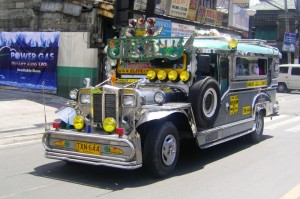
Everybody has the right to access and use public places such as restaurants, cinemas and other public facilities. Everybody means including persons with disabilities (PWDs). Unfortunately, not everyone understands it well. And worse, even up to this day, there are still some business owners who are not aware of this basic requirement, or they just refuse to follow it. As a result, persons with disabilities would usually go online and use the social media as their platform where they can voice out their complaint.
Some of us may think that implementing accessibility for PWDs is costly. That it may compromise security. For example, when there’s a ramp that allows a wheelchair bound person to enter a building, you might think that must have extended the allocated budget for the construction of the building right?
In this post, I’ll go over a number of accessibility features you could find in public places.
Persons with disabilities in the shopping mall
One time I wanted to use a public toilet in the mall. I saw that the third door for PWDs was closed. I didn’t have time to ask somebody there why it’s not available. I ended up using the regular toilet instead. It’s fine for me that time and just assumed it’s under maintenance or something.
Persons with disabilities in train stations
Another accessibility feature can be found in some train stations of both the LRT and MRT. I’m talking about the elevator exclusively for PWDs, senior citizens and pregnant women. people with disabilities and senior citizens are also allowed to ride on the train car for women.
These examples are few of the important things you should expect when you are in public places especially if you’re a PWD. I must say that laws for persons with disabilities are almost complete. However, maybe because of financial reasons or unawareness of some individuals or business owners, not all of these features or services I mentioned are implemented fully. Even though the law states the consequences if individuals or businesses failed to comply with the requirements, still many believe that laws for persons with disabilities in the Philippines are still not widely followed; let alone effective.
Persons with disabilities as commuters
PWDs sector in the Philippines still experiences some type of discrimination. For example, when a person on a wheelchair wants to ride a public transport such as city buses, to my knowledge there have been few cases where the drivers refuse to stop the moment they realized the person was a PWD. This left him no option but to find a taxi instead. But does he really need to extend his budget just to solve this kind of problem? No. That’s why we have laws specially made for them. Laws that can level the rights and privileges of all citizens regardless of their condition.
